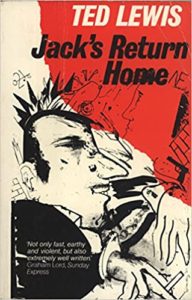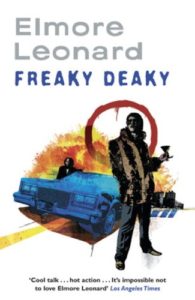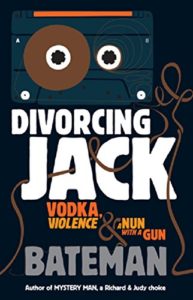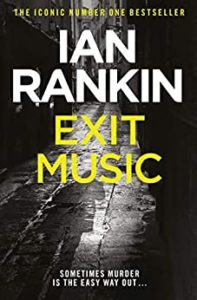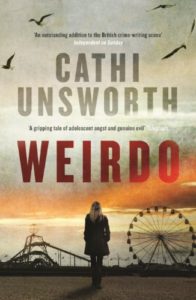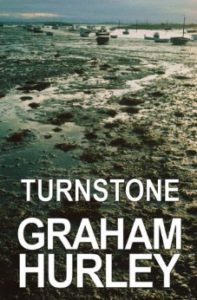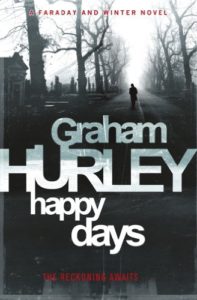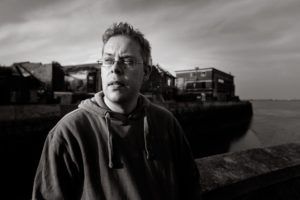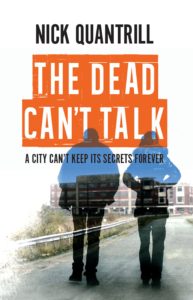Decades: Compiling the Ultimate Library with Nick Quantrill
If you wanted to assemble a library of the very best books which have been published and you knew you would never be able to complete this mammoth task alone then you would get in touch with booklovers and ask them to help. Well you would do that if you were me because that’s what I have done.
In January I began to assemble the Decades Library. I invite a guest to join me and ask them to nominate five books which they think should be added to my Ultimate Library. I set just two rules which govern the choice of books (sometimes my guests follow the rules)
Rule 1: Choose ANY five books
Rule 2: You can only choose one book per decade over five consecutive decades
This week I am delighted to be joined by Nick Quantrill. I am hugely grateful to Nick for finding time to consider which books should be added to my Library and I was itching to see which books he selected. Nick always lights up my Twitter feed with a combination of his contributions to some amazing interview panels and also his Hull City football tweets – both brighten my days considerably.
Decades
Nick Quantrill was born and raised in Hull, an isolated industrial city in East Yorkshire. His Private Investigator novels featuring Joe Geraghty are published by Fahrenheit Press with the latest being ‘Sound of the Sinners’. Nick is also the co-founder of the Hull Noir crime writing festival.
Nick is on Twitter: @NickQuantrill and online at https://www.nickquantrill.co.uk/
1970s – “Jack’s Return Home” by Ted Lewis
Maybe an obvious choice for a co-founder of Hull Noir, but I can’t ignore the credentials of one of our own. On one level, it’s a timeless tale of revenge told through the eyes of anti-hero, Jack Carter, as he leaves London and heads north to the Humber region to avenge the death of his brother. Of course, we know the tale well due to the film it created, ‘Get Carter’, but read the book and you get a sense of Lewis’s power as a writer. Much like William McIlvanney, Lewis was pioneering something new, something that would stand the test of time. It’s a powerful fusing of the hardboiled American style of crime writing with the social realities of northern England as it started a new decade. Lewis would go on to write a better novel in the form of “GBH”, but this one is undoubtedly a building block of modern British crime writing.
1980s – “Freaky Deaky” by Elmore Leonard
No library of crime writing is complete without some representation for Elmore Leonard, and although Dutch enjoyed a career spanning almost sixty years, the 1980s capture him at his peak. A high standard indeed. As ever, the focus is on the street and the characters you’re likely to meet. Abbot and Gibbs are fresh out of prison and have a score settle, as well as their services as bomb making experts to sell. Things never run smoothly in a Leonard caper, and so it transpires, as they’re tracked by a world-weary cop. Set in Detroit, the site of all his best work, it’s fast, fun and furious with dialogue that sizzles on the page. Often imitated, but never beaten, Elmore Leonard remains the greatest of the greats.
1990s – “Divorcing Jack” by Colin Bateman
I’d stopped reading as a teenager and only rediscovered my love of it in the mid-nineties as I left those years behind. Irvine Welsh was brilliant, as were Nick Hornby and Roddy Doyle, but Colin Bateman was something else. I’d never really understand how edgy and dangerous writing could be, but still remain fun and playful. “Divorcing Jack” introduces us to journalist, Dan Starkey, Belfast his beat. Starkey’s a mess, and after being thrown out by his long-suffering wife, he sleeps with the daughter of an influential politician and opens up a whole can of worms that threaten his life. The start of a long-running series and the basis of a decent film starring David Thewlis, it shows how crime fiction can tackle serious issues from a left field perspective and use humour as its weapon.
2002s – “Exit Music” by Ian Rankin
No library is complete without at least one book by Ian Rankin in it, and such is the consistency of the DI Rebus series, it’s no exaggeration to say you can pretty much pick a personal favourite. Once Rankin and Rebus hit their stride with “Black and Blue”, it’s the gold standard. At the time, “Exit
Music”, was billed as the final Rebus novel, and no doubt genuinely so. As ever, Rebus is thrown into a complex murder investigation, possibly a mugging gone wrong, but it’s certainly no random attack. Whip smart with its social commentary, the city of Edinburgh is the quiet star of the show. And as we now know, there was to be a route back for Rebus.
2010s – “Weirdo” by Cathi Unsworth
Despite being longlisted for the Theakston Crime Novel of the Year, “Weirdo”, feels like the one that got away. Maybe it’s because it’s a rare contemporary crime novel from the writer, rather than the historical work that has made her name, but it’s the perfect meeting point of lived experience and imagination. Set in a fictionalised version of Cathi’s home town, the flashbacks to 1984 and the world of teenage Goths draws on her days as a music journalist. The contemporary time line arguably anticipates the current popularity of claustrophobic small town stories, but also features the chilling life-like characters that inhabit such places, showing how they maintain their grip and power by any means necessary. Throw in murder, corruption and a Private Investigator with something to prove, and you’ve got all the ingredients for a modern classic.
This seems an almost perfect mix of titles. We have new books by returning authors and some new authors who are joining the Library for the first time. My thanks to Nick for joining me and taking on the Decades challenge.
As ever you can visit the Library here on the blog and see all the books which have been selected thus far. The Library also allows you to see all my previous guests and visit their posts too. You can start that journey here: https://grabthisbook.net/?p=5113

